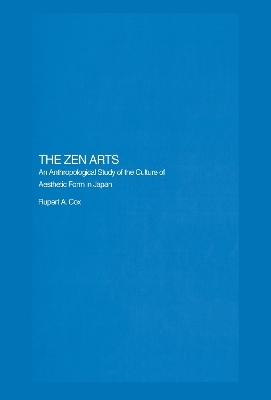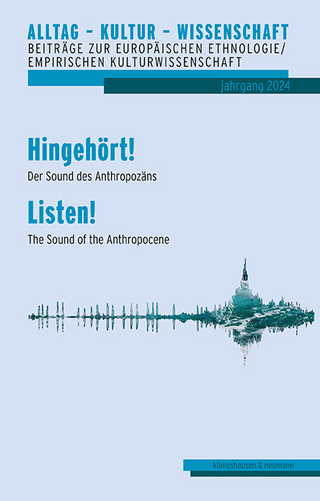
The Zen Arts
An Anthropological Study of the Culture of Aesthetic Form in Japan
Seiten
2002
Routledge (Verlag)
978-0-7007-1475-9 (ISBN)
Routledge (Verlag)
978-0-7007-1475-9 (ISBN)
Combining anthropological descriptions with historical criticism, Cox situates the Zen arts within contemporary critical discourses.
The tea ceremony and the martial arts are intimately linked in the popular and historical imagination with Zen Buddhism, and Japanese culture. They are commonly interpreted as religio-aesthetic pursuits which express core spiritual values through bodily gesture and the creation of highly valued objects. Ideally, the experience of practising the Zen arts culminates in enlightenment.
This book challenges that long-held view and proposes that the Zen arts should be understood as part of a literary and visual history of representing Japanese culture through the arts. Cox argues that these texts and images emerged fully as systems for representing the arts during the modern period, produced within Japan as a form of cultural nationalism and outside Japan as part of an orientalist discourse.
Practitioners' experiences are in fact rarely referred to in terms of Zen or art, but instead are spatially and socially grounded. Combining anthropological description with historical criticism, Cox shows that the Zen arts are best understood in terms of a dynamic relationship between an aesthetic discourse on art and culture and the social and embodied experiences of those who participate in them.
The tea ceremony and the martial arts are intimately linked in the popular and historical imagination with Zen Buddhism, and Japanese culture. They are commonly interpreted as religio-aesthetic pursuits which express core spiritual values through bodily gesture and the creation of highly valued objects. Ideally, the experience of practising the Zen arts culminates in enlightenment.
This book challenges that long-held view and proposes that the Zen arts should be understood as part of a literary and visual history of representing Japanese culture through the arts. Cox argues that these texts and images emerged fully as systems for representing the arts during the modern period, produced within Japan as a form of cultural nationalism and outside Japan as part of an orientalist discourse.
Practitioners' experiences are in fact rarely referred to in terms of Zen or art, but instead are spatially and socially grounded. Combining anthropological description with historical criticism, Cox shows that the Zen arts are best understood in terms of a dynamic relationship between an aesthetic discourse on art and culture and the social and embodied experiences of those who participate in them.
Rupert A. Cox is a member of the Department of Anthroplogy and the European Japan Research Centre, Oxford Brookes University.
Introduction - Japan, the Zen Arts and Myself 1. Orientalism - An Idea and an Ideal of Japan 2. A World Apart - Ascetic Reclusion and Aesthetic Enchantment in the History of the Zen Arts 3. The Word and the body in Practice - Aesthetics as Form and as Experience 4. Mimesis and Visuality - The Imitation and Imagination of Aesthetic Value 5. Structuring Relations - The Power of Person and Place 6. Distinguishing Persons - The Code of and for Becoming a Practitioner 7. Culture as Aesthetic Value - Ideological Dispositions and Commercial Affiliations in the Zen Arts 8. Cracking Culture - Authenticity is a Cultural Choice
| Erscheint lt. Verlag | 3.10.2002 |
|---|---|
| Reihe/Serie | Royal Asiatic Society Books |
| Verlagsort | London |
| Sprache | englisch |
| Maße | 156 x 234 mm |
| Gewicht | 657 g |
| Themenwelt | Sozialwissenschaften ► Ethnologie |
| Sozialwissenschaften ► Soziologie | |
| ISBN-10 | 0-7007-1475-8 / 0700714758 |
| ISBN-13 | 978-0-7007-1475-9 / 9780700714759 |
| Zustand | Neuware |
| Haben Sie eine Frage zum Produkt? |
Mehr entdecken
aus dem Bereich
aus dem Bereich
Wert, Tausch und menschliches Handeln
Buch | Softcover (2023)
diaphanes (Verlag)
CHF 39,20
Buch | Softcover (2024)
Königshausen u. Neumann (Verlag)
CHF 39,20
ein Forschungstagebuch (1911-1913)
Buch | Hardcover (2023)
Böhlau (Verlag)
CHF 139,95


